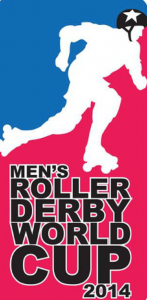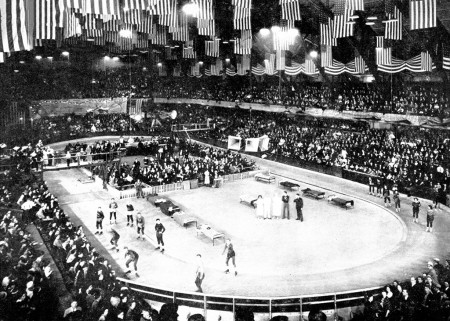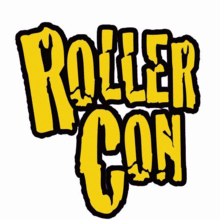
 Skate over, ladies. Birmingham, England hosts the first Men’s Roller Derby World Cup. Starting Friday, March 14 (GMT time zone), 15 nations compete in the UK over 3 days for 1 cup. Brown Paper Tickets own roller derby community leader Bob Noxious will be announcing many of the bouts. Watch the teams compete via streaming web.
Skate over, ladies. Birmingham, England hosts the first Men’s Roller Derby World Cup. Starting Friday, March 14 (GMT time zone), 15 nations compete in the UK over 3 days for 1 cup. Brown Paper Tickets own roller derby community leader Bob Noxious will be announcing many of the bouts. Watch the teams compete via streaming web.
US men’s team is favored, but expect strong competition from the UK, Canada, Australia and European teams. Unknowns are Argentina and Japan. All players are amateurs who pay to skate and had to find resources to travel. Roller derby men play hard and rough. You will be amazed at the skill, blocking strategy and sheer speed involved. Cheer for your country just like during the Olympics.
Of the 1500 amateur roller derby leagues in the world, more than 100 are men’s, most in the US. Among the most famous are the New York Shock Exchange and Your Mom. This year, Iowa’s Your Mom was the Men’s Roller Derby Association champion, and 4 members are on the US World Cup squad, along with Shock Exchange and other US men’s leagues’ best players. Team World Cup 2014 schedule.
I know derby. My father invented it in 1935 and I operated the professional game in the US and Canada in the 1960s and early 1970s. At that time, teams consisted of 5 men and 5 women who competed against the same complement of other teams (men vs. men and women vs. women). Roller derby shut down in 1973, and re-emerged in its modern flat track form in 2003 as a women’s game. Men only recently reappeared in the sport.
Take friends or family to watch a bout in person. Find roller derby on Brown Paper Tickets – ticketing more leagues than any other company.
Brown Paper Tickets’ team of community doers aim to improve and support various industries (sports, music, arts, non-profits) around the world. Noxious was selected as head announcer for the 2014 Dallas-based Women’s World Cup, sponsored by Blood and Thunder Magazine. In addition to announcing the inaugural Men’s Roller Derby World Cup, he’s also involved in junior leagues and pro women’s leagues across the US.
Roller Derby >





 Arts
Arts Comedy
Comedy Event Tips
Event Tips Film
Film Food & Drink
Food & Drink Good Causes
Good Causes Music
Music News
News Radio
Radio Roller Derby
Roller Derby